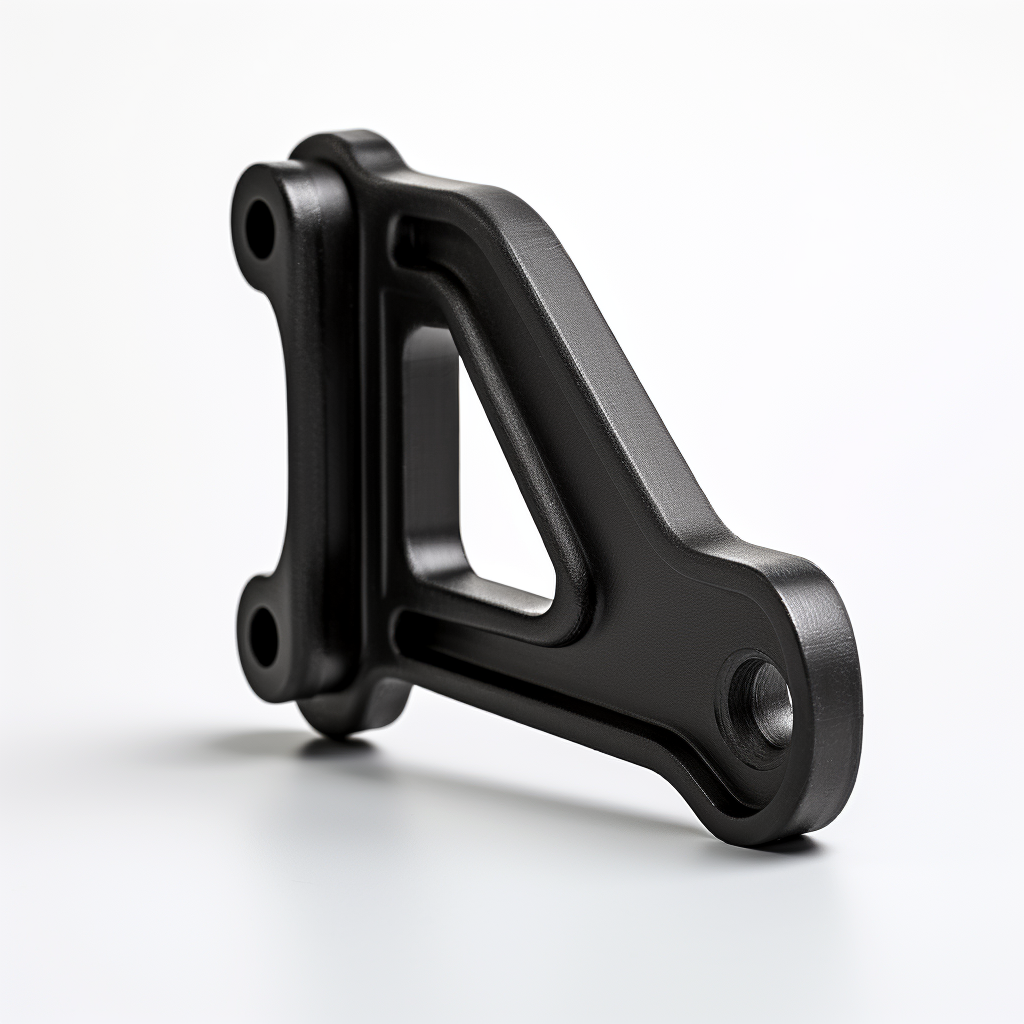
PC/ABS Plastic (Polycarbonate ABS Blend) Selection Guide
PC/ABS (Polycarbonate/Acrylonitrile Butadiene Styrene) is a blend of two different thermoplastic polymers: polycarbonate (PC) and acrylonitrile butadiene styrene (ABS). This combination offers a unique set of properties, making PC/ABS plastic suitable for various industrial applications. In this web page, we will explore the different types of PC/ABS, its numerous advantages and disadvantages, and the diverse industrial applications where PC/ABS plays a significant role.
PC/ABS (Polycarbonate/Acrylonitrile Butadiene Styrene) rapid manufacturing, & custom molded parts are available now!
Check with one of Canyon’s helpful product engineers for an expert material and manufacturing recommendation.
Common names include: PC/ABS (Polycarbonate/Acrylonitrile Butadiene Styrene), Trade Names: Bayblend®, Pulse®, Xantar®, Terlux®, Lustran®, Cycoloy®.

Advantages
- High Impact Resistance: PC/ABS blends combine the impact resistance of ABS with the heat resistance of polycarbonate, resulting in excellent toughness and durability.
- Good Processability: PC/ABS is easy to process through injection molding, extrusion, and other common plastic manufacturing techniques, making it suitable for a wide range of applications.
- Heat Resistance: PC/ABS can withstand moderately high temperatures without significant degradation, allowing it to perform well in various environments.
- Chemical Resistance: PC/ABS is resistant to many chemicals and oils, ensuring its stability in industrial settings.
- Excellent Aesthetic Properties: It can be easily molded to achieve smooth surfaces and sharp details, making it suitable for parts with aesthetic requirements.
- Dimensional Stability: PC/ABS has good dimensional stability, maintaining its shape and size under varying temperature conditions.
Disadvantages
- Cost: PC/ABS can be more expensive compared to some other thermoplastics, which can impact its use in cost-sensitive applications.
- Not Suitable for High-Temperature Environments: PC/ABS has a lower heat resistance compared to some engineering plastics, limiting its use in high-temperature applications.
- Flammability: PC/ABS is inherently flammable and can emit toxic gases when burned. Flame-retardant grades are often used to improve its fire resistance.
Common Applications of PC/ABS
- Automotive: PC/ABS is commonly used in automotive interior components such as dashboards, door panels, and trim due to its impact resistance and aesthetic properties.
- Electrical and Electronics: It is used for electrical enclosures, connectors, and housings due to its electrical insulating properties and toughness.
- Consumer Electronics: PC/ABS is used in the manufacturing of consumer electronics like laptop cases, smartphone covers, and game console housings.
- Medical Devices: PC/ABS is employed in medical device components such as equipment housings and device enclosures due to its biocompatibility and durability.
- Aerospace: PC/ABS can be used in aerospace applications for interior components, cabin trim, and instrument panels due to its lightweight nature and aesthetic appeal.
- Consumer Goods: It is used in various consumer products like kitchen appliances, luggage, and sporting goods due to its strength and aesthetic properties.
- Industrial Equipment: PC/ABS is used in industrial machinery components, equipment enclosures, and protective covers due to its toughness and resistance to impact.
Please consult a Canyon Components Engineer about your specific application and we will use our decades of experience to formulate a solution that fits your need.
Types of PC/ABS
PC/ABS can come in different variations, depending on its composition and intended use. Some common types of PC/ABS include the following.
Canyon Components strives to meet all customer service requests. Feel free to contact Canyon Components engineering and let our knowledgeable staff help you design the perfect part for your needs.
General Purpose PC/ABS
A versatile blend offering the high impact resistance of Polycarbonate (PC) and the processability of ABS. Ideal for a wide range of applications such as automotive interior parts, consumer electronics, and enclosures, where durability and aesthetic appeal are important.
High Impact PC/ABS
Specifically formulated to provide enhanced impact resistance, this type is suitable for products subjected to high stress or potential impact, including protective gear, high-strength housings, and robust consumer products.
Flame Retardant PC/ABS
Incorporating flame-retardant additives, this variant is essential for applications requiring stringent fire safety standards like electronic components, electrical housings, and parts in public transportation. It maintains the blend's mechanical properties while significantly reducing flammability.
High Heat PC/ABS
Designed to withstand higher temperatures, this type is ideal for applications in environments with elevated thermal exposure, such as automotive under-hood components, heat-exposed industrial parts, and high-temperature electrical applications.
Extrusion Grade PC/ABS
Optimized for extrusion processes, this type is suitable for creating complex, continuous shapes like tubes, profiles, and sheets. It is commonly used in manufacturing pipes, trim parts, and other custom profiles where precision and strength are required.
UV Stabilized PC/ABS
Enhanced with UV stabilizers, this variant is tailored for outdoor applications. It resists color change and material degradation under UV exposure, making it suitable for automotive exterior parts, outdoor enclosures, and any application where long-term exposure to sunlight is a factor.
Please consult a Canyon Components Engineer about your specific application and we will use our decades of experience to formulate a solution that fits your need.
Manufacturing Options for PC/ABS
PC/ABS parts can be manufactured using several methods, each suitable for different applications and part complexities.
Each of these methods has its own advantages, limitations, and cost implications. The choice of manufacturing technique usually depends on factors like the complexity of the design, required precision, material properties, and production volume.
Canyon Components strives to meet all customer service requests. Feel free to contact Canyon Components engineering and let our knowledgeable staff help you design the perfect part for your needs.
Back to Plastics Hub

Get A Quote Now!

Groove Design References
Learn More
Coatings, Packaging, & Other Services
Learn More
Custom Parts & Custom O-rings
Learn More
